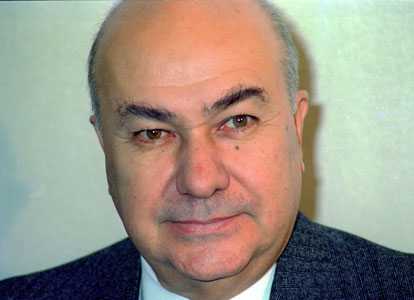One of the leaders of the 1980 military coup d’etat died in an Istanbul hospital Monday, hours before a prosecutor called the last two coup leaders still living to testify in court.

A prosecutor in Ankara sent invitations to Kenan Evren, the chief of General Staff at the time of the coup, and Tahsin Şahinkaya, then the Air Force commander, to testify in an investigation into the military coup and crimes of the post-coup era.
The two men are the last living members of the National Security Council, or MGK, formed after the army brass took over the control of the country.
Retired Gen. Nejat Tümer, who died Monday at the age of 87, was the Navy commander at the time of the Sept. 12, 1980, coup. He had been undergoing treatment for cancer at the Gülhane Military Academy Hospital, or GATA.
A ceremony will be held for Tümer at 11 a.m. Wednesday at the Navy War Academy and he will be buried at the Zincirlikuyu Cemetery following the noon prayer.
Evren and Şahinkaya were invited to testify by Deputy Chief Public Prosecutor Murat Demir, who was assigned in early April to launch an investigation into the 1980 coup. Such a probe became possible after a Sept. 12, 2010, referendum annulled the constitutional article that banned judicial action against the coup’s leaders. Hundreds of criminal complaints filed in prosecutors’ offices all over the country have been sent to Ankara, the site of the coup.
Evren’s lawyer came to the Ankara courthouse Monday, met the prosecutor and requested that his client be allowed to testify at his house in Ankara due to his age and health problems. The prosecutor’s office said it would assess the request and then make a decision. It will also decide where and how Şahinkaya, who lives in Istanbul, will give his testimony.
Evren, the country’s seventh president, had previously said he would never testify and claimed he would commit suicide before that would happen. “I promise in front of my nation that I will not let this matter be dealt with in the courts. I will commit suicide,” he said when the idea of a coup trial was discussed in 2009.
The investigation could result in a case being opened against Evren and Şahinkaya; alternatively, the prosecutors could decide not to pursue the case.
‘A very important development’
Parliament Speaker Mehmet Ali Şahin called the invitation to testify a “very important development.”
“Just three days ago, on the anniversary of the May 27, 1960, coup, we talked about how useless military interventions are and what such interventions made this country lose,” Şahin told reporters in Parliament.
He noted that debate was still continuing on whether the coup leaders could be put on trial, as some experts argue that the statue of limitations should apply to the crimes, which would make it too late to charge the generals.
“We will wait and see what the prosecutors and the court decide to do,” Şahin said.
Many experts argue that even a very liberal interpretation of the statute of limitations would not allow crimes – except for crimes against humanity – to be prosecuted more than 30 years after the fact. Others say the statute of limitations did not actually start until the law banning prosecution of the coup leaders was canceled.
Evren and Şahinkaya are the only top generals from the 1980 coup who are still alive. Then-Land Forces Commander Nurettin Ersin died Nov. 3, 2005, and Gendarmerie Commander Sedat Celasun died July 16, 1998.
The 1980 military coup was launched “to bring peace to a polarized society where thousands of people were being killed on the streets,” according to the coup generals and their supporters. The results, however, were devastating: 650,000 people were taken into custody and 230,000 were put on trial. Military prosecutors demanded the death penalty for 7,000 people; 517 of them received the death penalty and 50 were hanged.
The military rule revoked the citizenships of more than 14,000 Turks and another 30,000 left the country to seek refugee abroad.
In prisons, 299 inmates died of “indeterminate” reasons and 14 died while on hunger strikes. Torture by security forces reportedly claimed 171 lives.
Corruption charges for Şahinkaya
In addition to the coup-era killings, torture and mistrials, Şahinkaya has also been accused of corruption. Turkey selected the F-16 as its Air Force’s main fighter jet and more than 230 F-16s were jointly produced with the United States at a plant near Ankara between the late 1980s and 1999. Şahinkaya is accused of accepting bribes to promote F-16 over F-18 jets.
In a televised interview last September, the retired general flatly denied the allegations against him and said he had made a major contribution to the establishment of the aircraft industry in Turkey.
“In fact, I thought that Turkey should buy the two-engine F-18s, but other generals decided to go with the F-16s,” he said in the interview.
via Death takes one Turkish coup leader as court calls two others – Hurriyet Daily News and Economic Review.

Leave a Reply